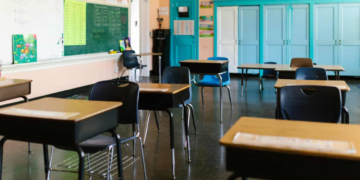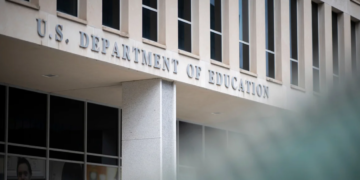Dec 13, 2024 Story by: Editor
The Pennsylvania Department of Education’s decision to remove mandatory guidelines for culturally relevant teaching practices has raised concerns among Black educators in Philadelphia. They fear the move could hinder teacher recruitment efforts in a district with a predominantly diverse student population but a predominantly white teaching workforce.
In November, the state resolved a lawsuit with a conservative advocacy group, agreeing to no longer require teachers to follow guidelines emphasizing awareness of “unconscious biases” and their impact on teaching and expectations. While the settlement doesn’t prohibit cultural competence training, the department issued optional new guidelines, preserving much of the original content and broadening training to include trauma awareness and technological skills.
Despite this, Black educators in Philadelphia view the settlement as a step backward. Many are alarmed by the possibility of similar actions under a second Trump administration, which has signaled opposition to diversity, equity, and inclusion (DEI) initiatives. Crystal Edwards, principal of W.D. Kelley Elementary School, described the state’s move as another blow to the teaching of African American history. “Teachers don’t have to learn to respect Black children, and America voted for that,” she stated.
Aliya Catanch-Bradley, principal of Bethune Elementary School, stressed the importance of representation in education. “We must ensure the history and cultures of students we serve are reflected in their literature and media,” she said. She criticized the reliance on individual districts to uphold culturally responsive teaching practices, especially in a state with many small districts and frequent book bans targeting multicultural texts.
Sharif El-Mekki, director of the Center for Black Educator Development, warned that the Pennsylvania settlement could signal broader nationwide challenges. “It’s the same playbook they use all around the country,” he said, noting efforts to undermine progress in education policy.
Philadelphia, however, intends to maintain culturally relevant teaching in its professional development programs. Monique Braxton, a district spokesperson, noted that the old guidelines were never officially implemented but assured that “our curriculum and professional learning will continue to focus on inclusive, high-quality instructional resources to accelerate student achievement.”
The settlement stems from an April 2023 lawsuit filed by the Thomas More Society, challenging the state’s “Culturally-Relevant and Sustaining Education Program Framework Guidelines” (CS-RE). These guidelines, developed after years of advocacy, aimed to promote inclusivity in education. Plaintiffs in the lawsuit claimed the guidelines violated teachers’ First Amendment rights, describing them as “compelled speech” and ideological. The Thomas More Society hailed the settlement as a “triumph.”
The controversy arises amidst a nationwide teacher shortage. In Philadelphia, hundreds of teaching positions remain unfilled, and many are staffed by educators with emergency certifications. A declining number of Black teachers compounds the issue; although over 50% of students in the city are Black, less than a quarter of teachers are, and only 4% are Black men.
El-Mekki pointed to systemic inequities in K-12 education as a key factor discouraging Black males from pursuing teaching careers. “What they experience during their own schooling makes them less likely to enter the profession,” he explained. He emphasized the importance of addressing attrition among Black educators, which is higher than in other groups. “We all have to take collective responsibility and listen carefully to address these challenges.”
For educators like Makiah Burroughs, culturally responsive teaching is invaluable. As a Black educator and graduate of Philadelphia schools, she credited her teacher training at the University of Virginia with equipping her to connect with students from diverse backgrounds. Now teaching second graders in West Philadelphia, Burroughs expressed dismay at Pennsylvania’s shift in policy. “To return to Philadelphia and see culturally relevant training no longer required seems crazy to me,” she said.
Others share concerns about potential federal pressure under a Trump administration. Ismael Jimenez, director of Philadelphia’s social studies curriculum, feared that threats to federal funding might discourage districts from pursuing DEI initiatives. “This might create an atmosphere of fear and self-censorship among educators,” he said, adding that the rollback of culturally relevant teaching “is a threat to many within the society.”
Nevertheless, educators like Edwards remain optimistic. “We have a long way to go, and we’ve come a long way,” she said. “It’s important to acknowledge how many victories we have won.” Source: News From The State

















